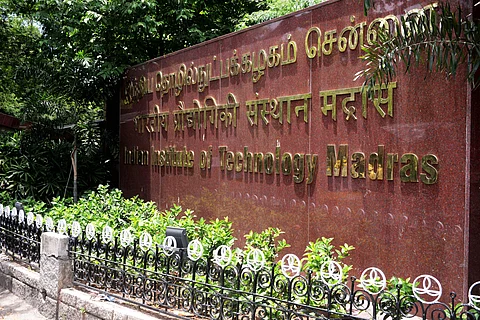

Indian Institute of Technolgy Madras (IIT Madras) and NASA (National Aeronautics and Space Administration) Jet Propulsion Laboratory (JPL) researchers have together studied the interaction between microbes in the International Space Station (ISS), said the institute on Friday, October 21. One of the key findings of this study is that microbes that reside on the ISS were discovered to be beneficial for other microorganisms but it obstructs the growth of fungus.
This study would help come up with strategies for the disinfection of space stations and also minimise the possible impact of microbes on the health of astronauts stated a PTI report. "Crews, during spaceflight, may have altered immunity and limited access to terrestrial medical facilities. Therefore, studying the microbes inhabiting the space station becomes important to understand the risks associated with short-term and long-term space travel on the health of astronauts," IIT Madras said in a press release, as reported by PTI.
The present study by IIT Madras and JPL was inspired by Klebsiella pneumonia. Klebsiella pneumonia is a bacteria that is dominant in the ISS and is a pathogen known to cause pneumonia and other nosocomial (hospital-acquired) infections. The researchers were broadly interested in understanding how this bacteria affects the growth of other microbes in the vicinity and the possible implications it could have, as reported by PTI.
The researchers have analysed the sample data taken across three space flights at seven locations on the ISS and found that the bacteria Klebsiella pneumonia is the major microbe that resided on the ISS and various other microbes on these space stations were from the same genus as Klebsiella pneumonia. It was also during this research that it was found that this bacteria is hampering the growth of Aspergillus fungus, stated the PTI report.
Dr Karthik Raman, Associate Professor at the Bhupat & Jyoti Mehta School of Biosciences and a core member of the Robert Bosch Centre for Data Science and Artificial Intelligence (RBCDSAI), IIT Madras, collaborated with Dr Kasthuri Venkateswaran, a senior research scientist at JPL. The work has been peer-reviewed and published in the esteemed international journal Microbiome, the PTI report stated.
